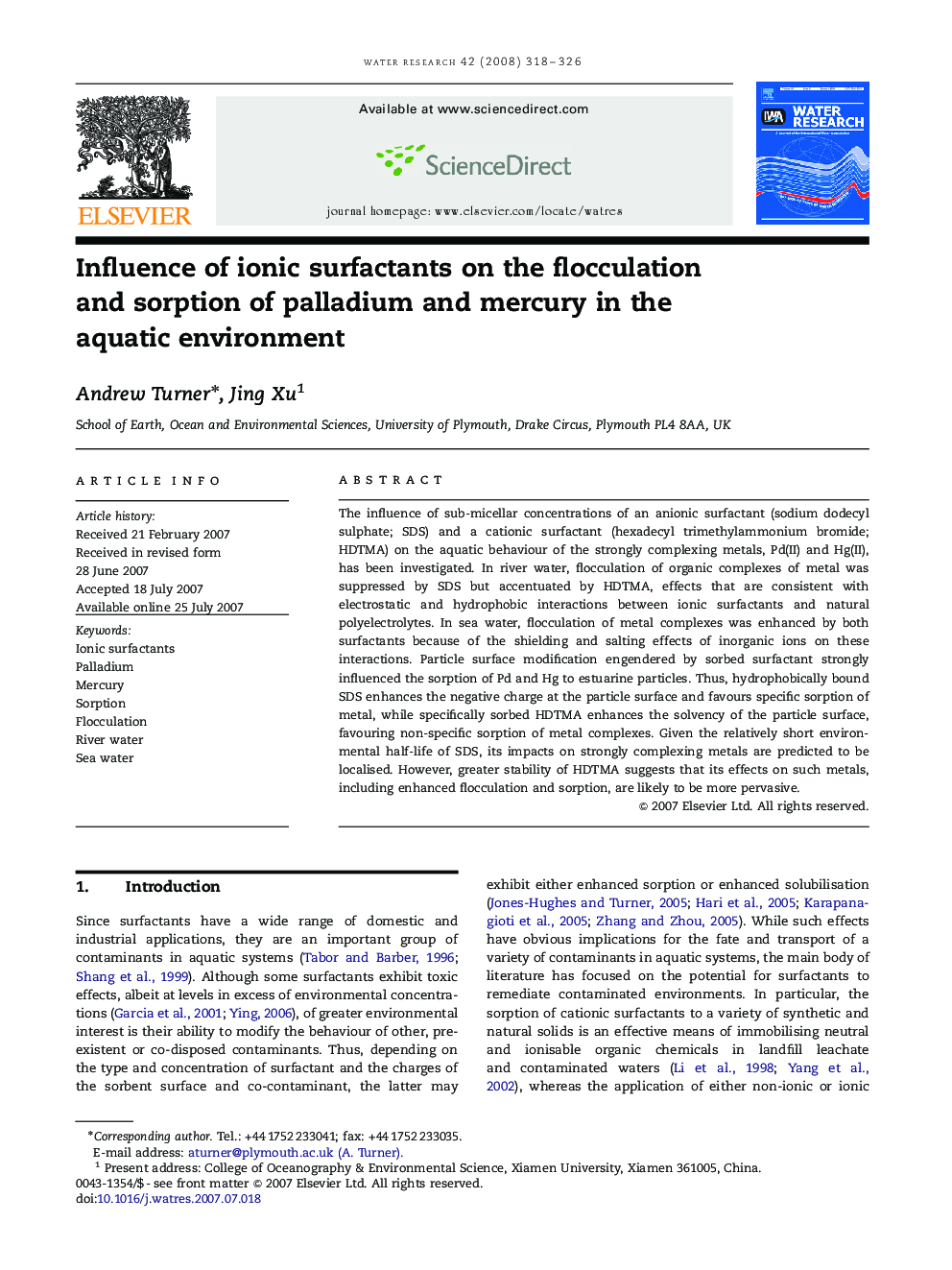| Article ID | Journal | Published Year | Pages | File Type |
|---|---|---|---|---|
| 4485765 | Water Research | 2008 | 9 Pages |
The influence of sub-micellar concentrations of an anionic surfactant (sodium dodecyl sulphate; SDS) and a cationic surfactant (hexadecyl trimethylammonium bromide; HDTMA) on the aquatic behaviour of the strongly complexing metals, Pd(II) and Hg(II), has been investigated. In river water, flocculation of organic complexes of metal was suppressed by SDS but accentuated by HDTMA, effects that are consistent with electrostatic and hydrophobic interactions between ionic surfactants and natural polyelectrolytes. In sea water, flocculation of metal complexes was enhanced by both surfactants because of the shielding and salting effects of inorganic ions on these interactions. Particle surface modification engendered by sorbed surfactant strongly influenced the sorption of Pd and Hg to estuarine particles. Thus, hydrophobically bound SDS enhances the negative charge at the particle surface and favours specific sorption of metal, while specifically sorbed HDTMA enhances the solvency of the particle surface, favouring non-specific sorption of metal complexes. Given the relatively short environmental half-life of SDS, its impacts on strongly complexing metals are predicted to be localised. However, greater stability of HDTMA suggests that its effects on such metals, including enhanced flocculation and sorption, are likely to be more pervasive.
